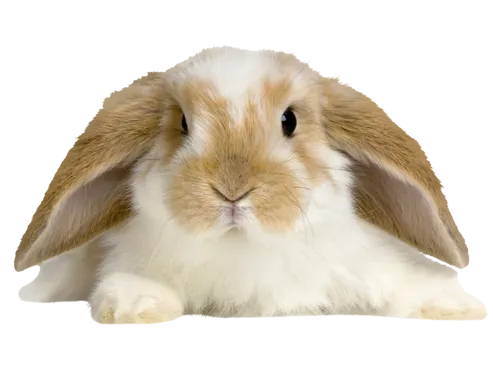Hay, vegetables, fruit and water advice.
Did you know that rabbits should be chewing hay or grass for six to eight hours a day? And that vegetables are also really important? Find out what kind of vegetables, fruit and herbs you can feed your rabbit. And what what you can’t.
Is your rabbit insured? Get a quote for £2,000 of vet fee cover | Insure up to 3 pets per policy | We’ve been insuring exotic pets since 1996 | Check out our customer reviews on Feefo.
Contents: How much hay should I feed my rabbit? | What is the best hay for my rabbit? | Why is hay so important for rabbits? | Can rabbits eat pellets? | What vegetables can rabbits eat? | What plants can rabbits eat? | What fruit can rabbits eat? | What foods are toxic to rabbits? | How much water does a rabbit need?
Keeping rabbits as pets is very popular in the UK. In fact around 2% of UK households own one according to the Pet Food Manufacturers Association (PFMA). And why wouldn’t you want one? With their soft fur, big black eyes, and long ears.
However making sure you give your rabbit the right food is really important.
We’ve listed what vegetables, fruit and herbs you can feed your rabbit, and we discuss the importance of hay. So you an be fully informed on the correct diet for your furry friend. Read on for more information.
We can insure rabbits for vet fees up to £2,000. Cover can be per rabbit (up to three pets) or per policy. Why not get a quote?
How much hay should I feed my rabbit?
Hay or grass should form the majority of your rabbit’s diet around 80-90%, it should be clean and fresh, and always available.
You should expect to see your furry friend munching hay for around six to eight hours a day according to the RSPCA.
What’s the best hay for my rabbit?
Alfalfa hay is the best kind for young rabbits up to seven months of age. This is because it’s high in calcium and protein that aid growth.
However you shouldn’t feed your rabbit Alfalfa hay as she gets older because the higher calcium content could lead to kidney and urinary problems.
Switch to a grass hay such as Timothy Hay or oat hay once she’s around seven months old. These are higher in fibre, which is an essential part of your furry friend’s diet.
ManyPets compares rabbit insurance providers on their website. Click the link to check out what they’ve found.
Why is hay so important for rabbits?
Hay is so important because it contains fibre which helps to wears down your rabbit’s teeth, which grow continually at a rate of 2mm to 3mm a week.
Allowing your rabbit’s teeth to overgrow can cause malocclusions (misalignment of the teeth). Dental problems like this can lead to mouth ulcers, difficulty eating, and a very sad rabbit.
(In a situation like this, you’ll need to see a vet – check out how ExoticDirect rabbit insurance can help with this).
Eating hay and grass is better than eating dried food because rabbits need to grind the hay or grass between their back teeth.
In contrast rabbits only need to crush dried food like pellets between their teeth, which doesn’t cause the teeth to grind down.
Hay is also vital in order to keep your rabbits gut working properly. The hay contains fibre, which the gut needs to work hard to digest.
If the gut doesn’t contain enough fibre, it can stop working properly resulting in blockages, such Gut Stasis.
This is an uncomfortable condition for rabbits where the digestive tract slows down or stops working. Bacteria then builds up causing gas and bloating, further decreasing your rabbits appetite.
Not only is it very uncomfortable it can also be deadly. So keep feeding that hay!
Own Guinea Pigs as well? Check out What can Guinea Pigs eat?
Can rabbits eat pellets?
Pellets are useful for younger rabbits when they need a diet that includes a concentration of nutrients in order to help aid growth. Ensure the pellets you buy are also high in fibre, which should be around 18%. However, the main part of your rabbit’s diet should still be hay.
Vegetables
By about three months you can begin to introduce a wide range of vegetables. If you introduce them one by one, you’ll be able to tell which ones are digested more easily and which ones aren’t .
You should feed your rabbit three different kinds of fresh vegetables a day.
What vegetables can rabbits eat?
Rabbits can eat the following veg:
- Basil
- Broccoli
- Beetroot greens
- Dark Green cabbage
- Carrot tops and roots
- Cauliflower and leaves
- Celeriac
- Celery
- Coriander
- Curly Kale
- Courgette
- Dill
- Fennel
- Mint
- Marrow
- Parsley
- Parsnip
- Peppers – green
- Pumpkin
- Radish Greens and Roots
- Rocket
- Salad greens and lettuce (not too many) and not iceberg lettuce
- Spinach
- Spring Greens
- Sprouts
- Squash (any type)
- Sweet potatoes (as a treat)
- Tomatoes in small quantities
- Watercress
With thanks to the Rabbit Welfare Association and Fund (RWAF); The Rabbit House; Peta.org.
What plants can rabbits eat?
Rabbits can eat the following plants:
- Agrimony
- Avens
- Apple leaves and twigs
- Blackberry leaves
- Burdock
- Calendula
- Cleavers (goose grass or sticky weed)
- Cornflower
- Common mallow
- Dandelions
- Echinacea
- Goats rue
- Golden rod
- Hawthorn
- Hazel
- Lemon balm
- Melitote
- Mulberry
- Nasturtium
- Pansies
- Rasberry leaves
- Rosebay Willowherb (fireweed)
- Roses (leaves and flowers)
- Shepherds purse
- Strawberry greens
- Willow leaves
- Yarrow
- Blackcurrent leaves
- Chamomile
- Lady Balm
- Marigold
- Melilote
- Mulberry
- Plantain (broad leaf and rigwort)
- Raspberry leaves
- Sunflowers
List taken from the RWAF website
Will rabbits eat geraniums?
There is confusion about whether rabbits should eat geraniums, with some sources saying they can, and some that they can’t. If in doubt, don’t feed them to your rabbit.
What fruit can rabbits eat?
Rabbits can eat the following fruit:
- Apples
- Bananas
- Blackberries
- Blueberries
- Cranberries
- Grapes
- Mandarines
- Mango
- Nectarines
- Orange
- Papaya
- Pears
- Peach
- Plums
- Pineapple
- Raspberries
- Raisins
- Strawberries
- Watermelon
You must remove any seeds from the fruit, especially apples, where the pips are toxic.
Only feed small quantities occasionally, as fruit is high in sugar. Too much can lead to dental problems and obesity.
Some fruits such as oranges are also high in acid, which can cause stomach problems and mouth ulcers.
How often should I give my rabbit fruit?
Rabbits should only be given fruit occasionally as it’s so high in sugar, that can lead to obesity or dental problems. Small portions, once or twice or week should be enough.
Don’t be tempted to give in when you see your rabbit tucking into a tasty piece of apple. Like with us and other food types, it may taste amazing, but it’s not that good for us.. Just remember, moderation is the key.
Can rabbits eat pumpkin seeds and other seeds?
Many seeds are not toxic to rabbits however they’re high in fat which could lead to obesity in your rabbit.
Find out what seeds and pits you should avoid feeding your rabbit.
What herbs can rabbits eat?
Rabbits can eat the following herbs:
-
- Basil
- Coriander
- Dill
- Mint
- Parsley
- Oregano
- Rosemary
- Sage
- Thyme
- Echinacea
What can rabbits not eat?
These foods are poisonous for your rabbit and could make her ill:
Potatoes, daffodils, tulips, rhubarb, lillies, mushrooms, avocado, broad beans, sweet peas, buttercup, kidney beans, jasmine, foxglove and iceberg lettuce.
Iceberg lettuce can be toxic in large quantities as it contains lactucarium, a substance that can be harmful for your rabbit. In addition, light coloured lettuces contain mostly water, and offer little nutritional value.
Don’t feed your rabbit apple or pear seeds as these contain cyanide, and can be harmful for your rabbit.
Don’t feed your rabbit the pits of apricot peaches and plums as these also contain cyanide.
Why can’t you feed your rabbit grass cuttings?
When grass is cut using a lawnmower, it passes near the hot engine of the mower. This heat triggers a fermentation process, that can be harmful for your rabbit’s tummy.
How much water does a rabbit need?
A rabbit will drink around 10% of her body weight in water daily.
You should ensure the water is clean and fresh, and supplied in either a bowl or a bottle.
If she doesn’t get enough water in her diet, then she could begin to suffer with dehydration and digestive issues.
Your rabbit will also get water from the vegetables she eats, so if she’s eating lots of these, don’t be alarmed if she doesn’t drink a lot of water as well.
Making food time fun – and getting exercise
If you want to combine feeding time with stimulation, try hiding your rabbit’s food underneath toys and inside empty toilet rolls.
In conclusion
Hay should make up the majority of your rabbits diet – around 80-90%.
Vegetables should also form an important part of your rabbit’s diet – you should give her around three portions a day. Pellets can be used to also supplement her diet.
Fruit should only be given occasionally – once or twice a week.
Water is an essential part of your rabbit’s diet – it will help prevent dehydration, and keep her gut moving. You should provide a constant supply of clean, fresh water, changed daily.
And along with this, lots of exercise should help to keep your rabbit happy and healthy for years to come.
Are you looking for rabbit insurance? Get a quote now.
Alternatively you can call us on 0345 982 5505

